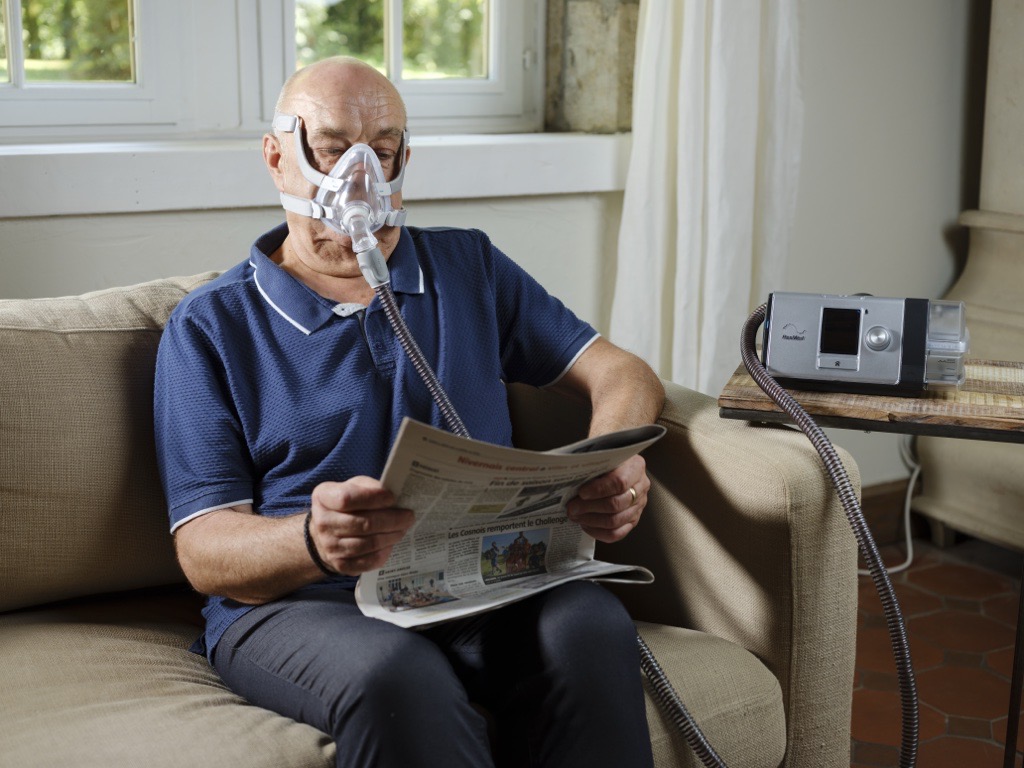The service at the Royal Victoria Infirmary supports countless people who need ventilation, improving their quality of life and often adding life to years.
Home mechanical ventilation is given using a machine that delivers a steady stream of air, which is attached to a hose connected to a mask on the nose, mouth or via tracheostomy (a tube in the neck).
It can help patients with damaged lungs from conditions such as COPD, or where patients have a neuromuscular disease which restricts the movement of air into the lungs.

On World Home Mechanical Ventilation (HMV) Day, the Home Mechanical Ventilation in Partnership (HMViP) aims to raise awareness, support and represent home mechanical ventilation patients, as well as their families and carers.
This year’s focus is on the role of family and professional carers in supporting patients with home ventilation and throughout the day, the HMViP will be sharing a series of podcasts recorded with carers about their valuable role in improving the quality of life for these patients.
Alison Armstrong, nurse consultant in the North East’s assisted ventilation service, and HMViP chair commented: “It is important to recognise that there is a balance of risk versus benefit when living outside of the hospital setting with complex health care needs. However, our role as healthcare professionals is to enable those living with HMV to live the life they want.
“My personal goal is to assure good life quality for all of my patients. The personal care teams working in the community setting to support patients who use HMV are instrumental in helping to achieve that goal. Ultimately, we aim to enhance the care of patients who are considering or using HMV and carers play a key part in us achieving that objective.
“Close relationships develop between patients and their carers, which is so important given the amount of time they need to spend in each other’s company. The needs of patients with HMV are very specific and can be highly technical. The empathy and skill set of these amazing carers means that these patients continue to live full and rewarding lives in a way that is supported and safe.”
Health and Social Care services (HASCS) provide complex care packages for people of all ages with a range of disabilities and life-limiting conditions.
Sharing their experience of care as part of this series of podcasts, paediatric clinical director for HASCS, Kate Steel, said: “The care we provide is about is about giving people independence and the opportunity to live a full life on their own terms at home.
“Care is what makes that independence possible, we support people to live as independent lives for as long as possible.”
Martin House provides family-led hospice care for children and young people with life-shortening conditions.
Many of their patients have home mechanical ventilation which means they can engage in activities outside of a hospital setting. The team at Martin House have shared their experience of making life as normal as possible for young people who need mechanical ventilation.
Lucy O’Hara, admission liaison nurse at Martin house added: “We try to make life as normal as possible for patients. We involve patients in a number of different activities and socialise them with other young patients with similar activities and needs. We can take them to the cinema, pub quizzes, we have even taken patients out on a catamaran in the sea!
“We have a festival every year for patients and in the grounds of Martin House where we have bands play. We had a patient who is on ventilation who did a DJ set for the evening.”
